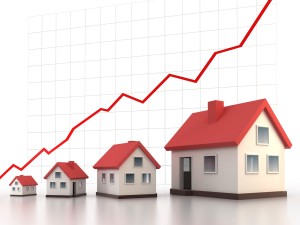 Have you ever wondered if your house is a good investment? Chances are you have. Let’s face it; you bought a house because you believed it would rise in value over time. Admit it. If you were certain it would fall in value, you wouldn’t have bought it. You would have rented instead. For many Americans, the house has held its value over time, with much less volatility than other investments.
Have you ever wondered if your house is a good investment? Chances are you have. Let’s face it; you bought a house because you believed it would rise in value over time. Admit it. If you were certain it would fall in value, you wouldn’t have bought it. You would have rented instead. For many Americans, the house has held its value over time, with much less volatility than other investments.
Owning a house can be a great investment, but probably not for the reasons you might think.
Let’s consider my own house purchase to determine if my house was a good investment. I purchased my house in 1998 for $170,000. At the end of 2014 my house was worth about $465,000. It would appear that I have a potential gain of $295,000 ($465,000 – $170,000) over that 17 year period of time. That is equivalent to an annual compound interest return of 6.10%.
According to the Federal Reserve, from 1998 through the end of 2013, inflation averaged 2.36% per year. In today’s dollars, a house that sold for $170,000 17 years ago would now cost $253,000 based on inflation. That means in today’s dollars the house has increased by only $212,000 ($465,000 – $253,000), a 3.65% net return. To the extent that my house is worth at least $253,000 in today’s dollars, I have no new net wealth, but I have maintained my buying power. To the extent that my house earned a higher return than inflation, new net wealth was created – in this case $212,000. However, a return of 3.65%, adjusted for inflation, is not phenomenally high.
However, there’s more to consider. During that 17 years I paid about $40,000 in property taxes, $11,000 in homeowners’ insurance premiums, and another $110,000 in various home improvements. That brings the actual gain down to $51,000 ($212,000 – $40,000 – $11,000 – $110,000), which brings the actual return down to 0.69%.
Before we break out the champagne to celebrate, there is one more thing to consider. If I sold the house to realize the apparent $212,000 gain I would have to subtract the cost to sell, such as real estate commissions, title insurance, etc… Assuming 7% in estimated costs to sell, or $32,550 ($465,000 x 7%), my return on investment in a house would be about 0.24%. My net profit after 17 years of ownership would be about $18,450 ($51,000 – $32,550).
When we consider the financial details of my experience owning a house it doesn’t look like my house was a very good investment. The good news is that there are many other factors that determine whether the house is a good investment. Unlike other investments, I have been able to live in my house for the last 17 years. During that time, my house has proven itself to be a great hedge against inflation. When I purchased my house my monthly mortgage payment was about $1,500. If I were to rent my house today I would pay about $2,100. The property taxes I pay each year I have owned my house have been tax deductible. Under current tax law, if my wife and I decided to sell our house we could take up to $500,000 in profit ($250,000 for a single filer) capital gains tax free. And finally, I borrowed against my ability to repay, using my house as collateral, and the interest I have paid on the borrowed funds has been tax deductible.
 Most of what determines whether a house is a good investment has little to do with the numbers and falls under the category of intangibles, such as the pride of homeownership, the security of ownership, the freedom to do with your house as you wish, and the independence to do with your house as you wish.
Most of what determines whether a house is a good investment has little to do with the numbers and falls under the category of intangibles, such as the pride of homeownership, the security of ownership, the freedom to do with your house as you wish, and the independence to do with your house as you wish.
The answer to the question, “Is the house a good investment?” is it depends. It depends on who you ask and what criteria that person is basing their decision on. All things considered, I believe a house IS a good investment. What do you believe and why?
If you’re interested in learning more about the house as an investment and how owning a house can help you grow your wealth contact us to schedule a time to talk about your specific circumstances.
Leave a Comment